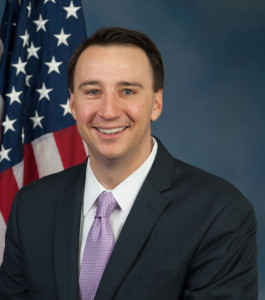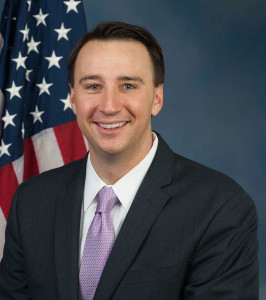By Ryan Costello, U.S. Rep., Sixth Congressional District
May provides us with a unique opportunity to honor both our veterans (Military Appreciation Month) and the women who are very special to us (Mother’s Day). Our nation owes a debt of gratitude to our veterans and our mothers, and I wanted to update you on my efforts to help our female veterans. Female veterans represent approximately 10% of the veterans population served by the U.S. Department of Veterans Affairs (VA), and this number is only expected to increase.
According to the Disabled American Veterans’ (DAV) report, “Women Veterans: The Long Journey Home,” 20% of new recruits are female, along with 14.5% of the active duty component and 18% of the reserve component. Additionally, about 200,000 women have served in Iraq and Afghanistan. Just in the last five years, the VA has seen a drastic increase in female veterans served and is finding that most VA facilities are not properly equipped to handle the volume.
The U.S. Census Bureau’s 2013 American Community Survey reports an estimated 51,942 female veterans reside in Pennsylvania, and over 3,000 are estimated to live in my district. In our region, the Coatesville VA Medical Center (VAMC) has seen a 58% increase in female veterans over the past five years. In fiscal year 2014, the Coatesville VAMC served about 1,049 female veterans. The Lebanon VA Medical Center (VAMC) has seen a 22% increase in female veterans over the past five years. In fiscal year 2014, the Lebanon VAMC served about 3,578 female veterans. Many of the veterans served at these facilities are residents of PA-6.
But with all of these female veterans returning home, we are seeing that many of our veterans’ facilities are too antiquated to provide the necessary structural space to meet the specific needs of female veterans and are not properly equipped with modern healthcare tools to ensure our veterans are receiving the best care. We have seen reports that indicate several shortcomings in healthcare access and coordination of care at VA health clinics.
I recently visited the Lebanon VA and saw the quality care they provide to female veterans. Our goal is to expand the quality service provided at facilities like the Lebanon VA to all other VA hospitals.
In March, my colleague Congresswoman Dina Titus (D-NV) and I led a letter to Richard Griffin, Deputy Inspector General of the Department of Veterans Affairs, requesting an inspection into VA policies designed to meet the needs of female veterans. Specifically, we asked the Veterans Health Administration (VHA) to report on its ability to provide gender specific care and to report on current privacy standards in place for female veterans.
In addition, the House Veterans Affairs’ Committee recently held a hearing to examine access and quality of care and services for female veterans. At the hearing, we heard many of the same concerns – female veterans are experiencing different challenges than men, particularly when attempting to access healthcare and other VA services. Through the report in response to our letter to Deputy IG Griffin, as well as through our Committee’s continued oversight, we will gain greater insight into how we can improve healthcare quality and access for female veterans who utilize VHA services.
We also heard that female veterans are experiencing a higher unemployment rate than their male counterparts. As DAV outlined at the hearing, “an estimated 200,000 are expected to leave service in the next five years,” and I believe it is critical that we provide the necessary tools to support women’s veterans employment. The VA must improve their outreach to ensure women are aware of the services provided for their transition into civilian life. One of my priorities on the House Veterans’ Affairs Committee is to improve our Transition Assistance Program (TAP) for all veterans returning to civilian life, including providing economic opportunity and skills training.
As we continue to examine the VA’s current care and services for female veterans, I am committed to working on addressing these gaps in many VA programs to better serve female veterans.
I am eternally grateful for all who serve our great nation. We must ensure that all veterans – no matter their gender – are receiving the best care possible.







